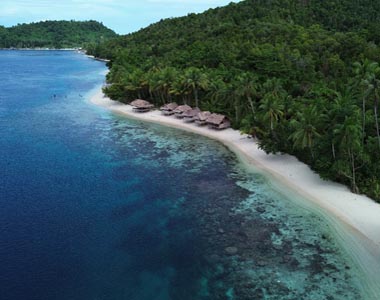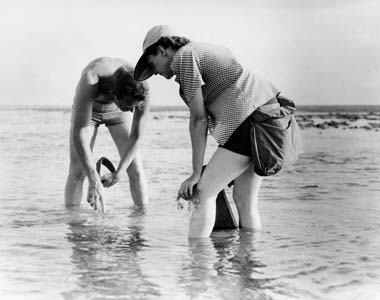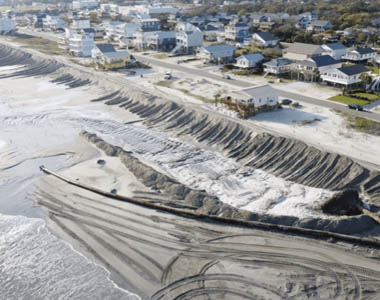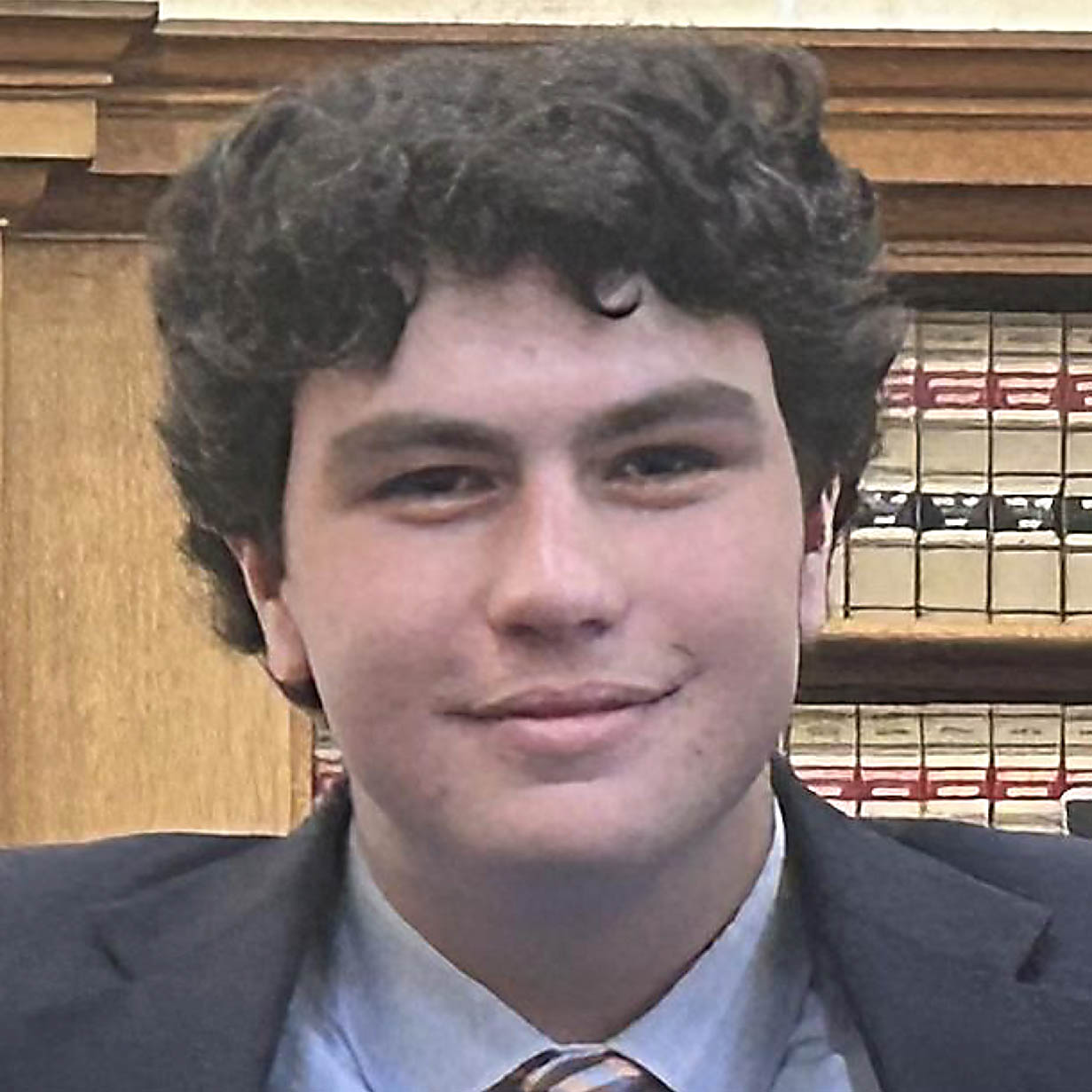 | | | After a busy World Ocean Month, several major changes have occurred in the seascape. June saw significant progress in ocean conservation at the United Nations Ocean Conference (UNOC). But movement on the international stage is partially offset by regressive domestic policies from the federal government. Nevertheless, in this June issue of the RCC Coasts and Ocean Observer you can read about what states and non-profits (including the RCC) are doing to push back and protect marine environments.  First, real progress. In our “Breaking Waves” section, find out more about the positive outcomes made in Nice at the third UN Ocean Conference where French Polynesia, for instance, announced the creation of the world’s largest Marine Protected Area (MPA), totaling 1.9 million square miles, or about half of the total area of the United States! The U.K. built on this by restricting destructive bottom trawling along even more of its coast, while the U.S. still refuses to take steps to ban trawling the ocean floor. First, real progress. In our “Breaking Waves” section, find out more about the positive outcomes made in Nice at the third UN Ocean Conference where French Polynesia, for instance, announced the creation of the world’s largest Marine Protected Area (MPA), totaling 1.9 million square miles, or about half of the total area of the United States! The U.K. built on this by restricting destructive bottom trawling along even more of its coast, while the U.S. still refuses to take steps to ban trawling the ocean floor.
Take heart, however, as marine conservationists throughout the United States continue to care for marine life and marine ecosystems. You will be touched by one of our favorite stories this month in “Marine Life and Conservation.” It’s about a turtle named Dilly Dally. The injured Dilly Dally manages to get back into the wild despite an amputated flipper thanks to the work of veterinarians at the Loggerhead Marinelife Center in Juno Beach. Florida. And in the Chesapeake Bay, oysters are now on the rebound. Recent harvests show these natural filters are contributing to better water quality, as well as a more resilient coastal economy. It is an important and stunning turnaround for one of the most important species in the Bay.  In Morehead City, North Carolina, a group known as the Coastal Cohorts — that includes noted UNC–Chapel Hill professor and author Bland Sampson (The Coasts of Carolina), who has also had a long musical career — have written a new song that is a touching tribute to Rachel Carson. Written near the Rachel Carson Reserve in Beaufort, where Carson wrote her first book, the song is full of sounds from the natural world and lyrics related to Carson’s life and work. It will become part of the 40th annual production of the comedic musical “King Mackerel and the Blues” that will be performed October 24-25 in support of the NC Coastal Federation. In Morehead City, North Carolina, a group known as the Coastal Cohorts — that includes noted UNC–Chapel Hill professor and author Bland Sampson (The Coasts of Carolina), who has also had a long musical career — have written a new song that is a touching tribute to Rachel Carson. Written near the Rachel Carson Reserve in Beaufort, where Carson wrote her first book, the song is full of sounds from the natural world and lyrics related to Carson’s life and work. It will become part of the 40th annual production of the comedic musical “King Mackerel and the Blues” that will be performed October 24-25 in support of the NC Coastal Federation. Looking at coastal development in “Climate and Energy,” the Trump Administration is considering the South Carolina coast for offshore drilling. The people of cities along the coast have already voiced significant opposition to the proposal and the RCC is fighting hard to protect these waters from devastating offshore oil rigs and potential ecological disasters.  Elsewhere along the coast, in Oak Island, NC, residents are pushing back on a plan to develop beachfront properties. According to the NC Coastal Review, such waterfront homes, local citizens say, are too vulnerable to storms and rising seas. And, for additional good news, in our “Sustainability” section, scientists have also studied beach waste and discovered that plastic bag bans enacted by a dozen states actually do reduce waste. Elsewhere along the coast, in Oak Island, NC, residents are pushing back on a plan to develop beachfront properties. According to the NC Coastal Review, such waterfront homes, local citizens say, are too vulnerable to storms and rising seas. And, for additional good news, in our “Sustainability” section, scientists have also studied beach waste and discovered that plastic bag bans enacted by a dozen states actually do reduce waste.
Richard Powers, acclaimed author of The Overstory, has written a new book set in the oceans around Makatea, an island in French Polynesia. In Playground, a contender for the 2024 Booker Prize, Powers deals head-on with the impact modern technology and development may have on small island communities and the oceans on which they depend. The novel discusses AI, technology development, and climate colonialism. Read more in our “Books” section with a review from The Guardian. July Fourth weekend is approaching. As we sit on the beach and watch fireworks pop in the sky, remember the water beneath it. While summertime and record heat provide a great excuse to hit the beach and go for a swim, we need to recall that having an ocean clean enough to swim and frolic in is not certain. There is still work to be done, as the ocean faces assaults from the administration in Washington and from our ever-changing climate. We hope you will join in the efforts of the Rachel Carson Council and organizations like it this summer to clean up and protect our coasts and our oceans and all the life they support. | | | | | | | | RCC Stanback Presidential Fellows - MacEva Wright and RCC Stanback Presidential Fellow - Ewan Dignon  MacEva Wright is the co-lead of the RCC Coasts and Ocean program with Bob Musil. She is a second-year graduate student at Duke University’s Nicholas School of the Environment working on a Master’s of Environmental Management with an emphasis on Coastal and Marine Systems and Environmental Justice. MacEva Wright is the co-lead of the RCC Coasts and Ocean program with Bob Musil. She is a second-year graduate student at Duke University’s Nicholas School of the Environment working on a Master’s of Environmental Management with an emphasis on Coastal and Marine Systems and Environmental Justice.  Ewan Dignon is the co-lead of the RCC Coasts and Ocean program with Bob Musil. He is an undergraduate at Duke University pursuing two degrees, Public Policy (B.A.) and Economics (B.A.), with a minor in Environmental Sciences and Policy. Ewan Dignon is the co-lead of the RCC Coasts and Ocean program with Bob Musil. He is an undergraduate at Duke University pursuing two degrees, Public Policy (B.A.) and Economics (B.A.), with a minor in Environmental Sciences and Policy. | | | | | | UN Ocean Conference Makes Progress on Protecting Marine Waters The United Nations Ocean Conference, held June 9-13 in Nice, France, saw some progress on better protecting the hundreds of thousands of species that live in marine waters and the communities that depend on the sea for work or sustenance. New countries committed to the high seas treaty, a moratorium on deep-sea mining and the World Trade Organization Agreement on Fisheries Subsidies, while a huge group of nations pushed for a strong global plastics treaty. | | | | | | | | Why the UN Ocean Conference 2025 Was Make-or-Break for Marine Protected Areas From June 9–13, Nice, France, hosted the third United Nations Ocean Conference, co-organized by France and Costa Rica, convening over 14,000 delegates from 175 countries, according to IISD reporting. Delegates from different countries, including heads of state, government officials, Indigenous leaders and local communities, scientists, NGOs, financiers, and activists, convened with a shared mission: to accelerate ocean action and fulfill Sustainable Development Goal (SDG) 14. | | | | | | | | Elevating and Learning from a World Down Under Panic began to set in. I was about 400 feet away from the dive boat when, in an instant, I couldn’t move my right leg. I was moments away from flailing my arms in distress to signal for rescue. Minutes earlier, I had been hovering above a coral reef off the coast of Port Douglas, Australia, mesmerized. It was my first time snorkeling in the open ocean, and seeing a reef right before my dive mask was surreal. | | | | | | | | Virginia Group Helps Families Create Lifetime Memories Through Fishing In an age when digital diversions are an issue, creating deep family bonds can sometimes be difficult. But, there is a unique group and program that encourages kids to put down their devices, at least for a few hours, to have fun with their families and create memories to last a lifetime. Reel Connections for Kids is a non-profit organization that puts together outdoors outings and events for families that might not otherwise get the opportunity. | | | | | | | | Biologists Discover Stunning Turnaround in One of US' Most Critical Oyster Populations: 'We've seen a rebound' After decades of population decline, Chesapeake Bay oysters are thriving again, the Washington Post reported. A vibrant oyster population is essential to water cleanliness and aquatic biodiversity. As one of nature's best natural filtration systems that remove sediments and pollutants, they filter as much as two gallons of water hourly. Their healthy reefs are also habitats for other species like striped blennies, American eels, skilletfish, and blue crabs. | | | | | | | | Sea Turtle Named Dilly Dally Crawls Back to the Ocean After Having Flipper Amputated at Florida Hospital An adolescent loggerhead sea turtle named Dilly Dally crawled into the Atlantic Ocean Wednesday morning, months after having a front flipper amputated at a Florida turtle hospital. The turtle was brought to Loggerhead Marinelife Center in January suffering from predator wounds to the front flipper. The veterinary crew at the Juno Beach facility assisted in Dilly Dally's rehabilitation and care. | | | | | | | | Elkhorn Coral Transplant Could Be Start of the 'new normal' For Florida Coral Reefs Finding more heat-resistant coral species could be the key to staving off their extinction as ocean temperatures are expected to continue rising. Earlier this month, researchers at the Florida Aquarium took the first steps toward restoring some of the coral off the Florida Keys that died during a record heat wave two years ago. | | | | | | | | It’s Nesting Season: Don’t Forget to Share the Shore with Coastal Birds As the weather warms up, many of us will be visiting the beach this summer. We’re not the only ones who love the sun and sand—tiny, cotton-ball-sized chicks like Western Snowy Plovers will soon be hatching and running around on those same beaches. They’re well camouflaged and easy to miss, so they need our help to make sure they can grow up safely, even while we’re nearby enjoying the beach with our families and pets. | | | | | | | | | | Coastal Cohorts Cast Off For 40th Season With Carson Tribute Countless reviewers and critics have noted through the decades how Rachel Carson’s words above, first published in 1955, were written from the point of view of a scientifically sophisticated observer. Carson had the knack for describing the various aspects, patterns and lifeforms — many invisible or unknown to all but the most familiar – found on the world’s three types of ocean shore, all three of which, she noted, are found along the East Coast. | | | | | | | | UK Proposes Wider Ban on Destructive Ocean Bottom Trawling A ban on a "destructive" type of fishing that drags large nets along the seafloor could be extended across English waters, the government has said. The proposal would expand the ban on bottom trawling from 18,000km2 to 48,000km2 (around 18,500 sq miles) of the UK's offshore areas that are already designated as protected. The plan is subject to a 12-week industry consultation. | | | | | | | | Boom Times for Baby Birds on the NC Coast Our sanctuaries are budding with new life. Here’s a full rundown of the nesting season so far. From the Cape Fear River to Pamlico Sound and beyond, coastal birds are already raising the next generation of chicks this spring and summer. American Oystercatchers are scurrying after their long-legged chicks on the river, Least Terns and their fish-loving babies are thriving on barrier islands, and Royal and Sandwich Tern chicks are finding their way amongst colonies that number in the thousands. | | | | | | | | Sea to Soil Symposium: Uniting Ocean and Earth for a Regenerative Future The Sea to Soil Symposium at Stony Brook Southampton brought together a powerful convergence of scholars, practitioners and community leaders to explore the interface between marine environments and terrestrial food systems. Framed by urgent environmental challenges and grounded in community-rooted solutions, the May 2 event drew students, scientists, Indigenous leaders and policymakers into one of the most forward-looking conversations on the future of coastal resilience and sustainable agriculture on Long Island. | | | | | | | | Mangrove Forests Demonstrate Surprising Storm Resilience in Changing Climate: Study Mangrove forests buffer coastlines from flooding while acting as valuable carbon sinks, but scientists are concerned about the impacts that more extreme and frequent storms caused by climate change are having on these ecosystems. In a new study, scientists from Yale School of the Environment discovered that mangrove forests could actually be more resilient to these more intense storms than had previously been thought. | | | | | | | | Seagrass Bubble Sounds Can Be Used to Measure Carbon Storage In coastal waters, hidden beneath the surface, seagrasses quietly play a vital role. They trap carbon dioxide more efficiently than tropical rainforests, acre for acre. Professor Ken Dunton, a marine biologist at UT Austin, has spent decades studying these coastal meadows. He noted that most of the biomass of a seagrass plant is below ground. “That’s where all the tissues store carbon.” | | | | | | | | ‘Super cool’ Project Turns Lake Bonnet’s Algae Into Jet Fuel The water in Lake Bonnet isn’t supposed to be the murky green of an exotic cocktail. And it might not be in the future, if an innovative algae-harvesting project works as expected. The city is nearly halfway through an eight-month test of cutting-edge algae harvesting equipment from Texas-based AECOM. Tanks, pumps and pipes are set up near the northeast bank of Lake Bonnet, steps away from the Bonnet Springs Park nature center. | | | | | | | | Federal Government Considering South Carolina Coast For Offshore Drilling Offshore drilling is once again under consideration off the coast of South Carolina, but not by locals. The Bureau of Ocean Energy Management is redoing its 5-year plan, which involves evaluating the American coastline for potential sites to drill for oil. Over the last 10 years, President Donald Trump has pushed for unlocking America’s energy potential with campaign taglines like, “drill, baby, drill.” | | | | | | | | Mangroves Show Surprising Resilience to Storms in a Changing Climate Researchers at the Yale School of the Environment found that mangrove forests in the Florida Everglades can recover rapidly from disturbance, underscoring the value of restoration efforts. Dense, spindly mangrove forests line the coast of tropical regions, buffering coastal flooding and providing a valuable sink for carbon, but there is concern that more intense and frequent storms due to climate change could have prolonged impacts on these ecosystems. | | | | | | | | Oak Island Residents Say Oceanfront Lots Unsuited For Homes When Gigi Donovan looks at the dune fronting a row of largely undeveloped oceanfront lots across the street from her home, she sees a false sense of security. “We’ve seen this dune go away three times in 12 years,” she said. The sandy mound that separates the public beach from private lots along a stretch of East Beach Drive wasn’t here just a few years ago. It has been built up and planted with dune-stabilizing sea oats through the town of Oak Island’s efforts to restore its oceanfront shore. | | | | | | | | Fish in a Barrel By some measurements, Maine has a longer coastline than California. The water meanders through channels and around islands. The ocean jogs inland before the land pushes it back out. The water rushes in and out of these inlets as the tides change. Boats and docks go up a few feet and down again with the lunar cycle. In the few hours between tides, thousands or millions of gallons of water flow through narrow gaps, as well as all that comes with it. On one of these coastal islands, not far from Damariscotta, is a campground only reachable by kayak or canoe. | | | | | | | | Science Says Plastic Bag Bans Really Do Work When you outlaw or discourage the sale of plastic bags, fewer of them end up as litter on beaches. That’s the intuitive finding of a paper published Thursday in the journal Science, which involved an analysis of policies to restrict plastic bag use across the United States. The study authors found that, in places with plastic bag bans or taxes, volunteers at shoreline cleanups collected 25 to 47 percent fewer plastic bags as a total fraction of items collected, compared to places with no plastic bag policies. | | | | | | | | Playground by Richard Powers review –
an electrifyingly beautiful tale of tech and the ocean The wonders of oceanic life shine through in a magical book that is at once Anthropocene novel, disquieting AI thriller, postcolonial allegory and a portrait of friendship.  Richard Powers’s 2018 Pulitzer-winning book The Overstory was one of the landmark novels of the past decade. Grounded in science and animist thought, it was a glorious ode to the wondrousness of trees. Bewilderment (2021) interleaved private loss and climate collapse to recount the grief-soaked journey of an astrobiologist and his neurodivergent son. Both these novels were set in the US. In Playground, his cerebral, Booker-longlisted new novel, Powers swivels part of his attention to French Polynesia, taking on neo-colonialism, artificial intelligence and oceanography. Richard Powers’s 2018 Pulitzer-winning book The Overstory was one of the landmark novels of the past decade. Grounded in science and animist thought, it was a glorious ode to the wondrousness of trees. Bewilderment (2021) interleaved private loss and climate collapse to recount the grief-soaked journey of an astrobiologist and his neurodivergent son. Both these novels were set in the US. In Playground, his cerebral, Booker-longlisted new novel, Powers swivels part of his attention to French Polynesia, taking on neo-colonialism, artificial intelligence and oceanography.
One strand of the novel unfolds in Illinois in the late 20th century. It follows ocean-loving coding whiz Todd Keane and Rafi Young, a Black book-lover he connects with in high school over chess and, later, the Chinese game of Go. They both come from dysfunctional, if very different, families. Todd’s father is an accomplished pit trader with a secret life; Rafi’s is a boorishly pragmatic firefighter who is always impressing upon him the importance of hard work and excellence in the face of systemic racial inequality. Todd and Rafi deepen their bond during college but begin to drift apart once Ina Aroita, a young sculptor born to a Hawaiian father and a Tahitian mother, enters the picture. Told retrospectively in an italicised first person, these sections are in the voice of 57-year-old Todd, who has dementia with Lewy bodies, and are addressed to a mysterious “you”. Todd is now a digital tycoon, having made his name with a virtual economy platform called Playground. A measure of the book’s suspense comes from Todd’s groundbreaking, if unsettling, experiments with AI. Read more here. Purchase here. | | | | | | The June 2025 issue of RCC's Coasts and Ocean Observer was produced by Ross Feldner | | | | | |  The Rachel Carson Council Depends on Tax-deductible Gifts From Concerned Individuals Like You. Please Help If You Can. The Rachel Carson Council Depends on Tax-deductible Gifts From Concerned Individuals Like You. Please Help If You Can. | | | | | | | |  Sign Up Here to Receive the RCC E-News and Other RCC Newsletters, Information and Alerts. Sign Up Here to Receive the RCC E-News and Other RCC Newsletters, Information and Alerts. | | | | | | | | | | | |